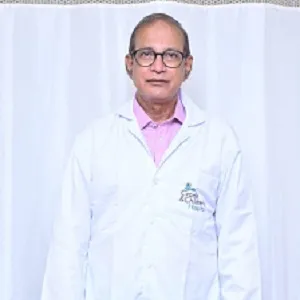Pediatric allergy, also known as childhood allergy, is a common condition that affects many children worldwide. Allergies occur when the immune system reacts to a normally harmless substance, such as pollen, food, or animal dander as if it were a dangerous invader. This article will explore the types, causes, symptoms, remedies, and treatments of pediatric allergies.
Different Types of Pediatric Allergy
There are many different types of pediatric allergies, including:
- Food Allergy: A reaction to certain foods such as milk, eggs, nuts, wheat, and soy.
- Seasonal Allergy: A reaction to pollen from trees, grasses, or weeds, which causes symptoms like sneezing, runny nose, and itchy eyes.
- Perennial Allergy: A reaction to allergens that are present year-round, such as dust mites, mold, and pet dander.
- Insect Sting Allergy: A reaction to venom from bees, wasps, or ant stings.
- Drug Allergy: A reaction to certain medications.
Symptoms of Pediatric Allergy
The symptoms of pediatric allergy can vary depending on the type of allergen and the severity of the reaction. Common symptoms include:
- Runny or stuffy nose
- Sneezing
- Itchy or watery eyes
- Skin rash or hives
- Stomach cramps or diarrhoea
- Vomiting
- Difficulty breathing or wheezing
In severe cases, an allergic reaction can lead to anaphylaxis, a life-threatening condition requiring immediate medical attention.
Causes of Pediatric Allergy:
The exact causes of pediatric allergies are not fully understood, but genetics and environmental factors are believed to play a role. Some children may have a genetic predisposition to allergies and may be more likely to develop them if one or both parents have allergies. Environmental factors, such as exposure to allergens like pollen, dust mites, pet dander, or certain foods, can also trigger an allergic reaction. Other factors that may contribute to the development of pediatric allergies include pollution, diet, and the use of antibiotics at an early age.
Remedies for Pediatric Allergy
Many remedies can help manage the symptoms of pediatric allergy, including:
- Avoiding allergens: The most effective way to manage pediatric allergy is to avoid the allergen that triggers the reaction. This may involve changes in diet, avoiding certain animals, or limiting exposure to outdoor allergens like pollen or mold.
- Medications: Over-the-counter antihistamines and decongestants can help relieve symptoms like sneezing, itching, and congestion. In some cases, prescription medications like nasal corticosteroids or leukotriene inhibitors may be necessary.
- Immunotherapy: Allergy shots or sublingual immunotherapy (under-the-tongue tablets) can help desensitize a child's immune system to the allergen over time.
Treatments for Pediatric Allergy
Emergency medical treatment may be necessary if a child has a severe allergic reaction. Treatment options may include:
- Epinephrine injection: In cases of anaphylaxis, a shot of epinephrine can quickly open airways and improve breathing.
- Oxygen therapy: If a child is having difficulty breathing, oxygen therapy can help improve oxygen levels in the blood.
- Intravenous fluids: In severe cases, a child may need intravenous fluids to help maintain blood pressure and circulation.
When should I go see a doctor?
Parents should seek medical attention if they suspect their child has a pediatric allergy. It is important to see a doctor if the child experiences severe or worsening symptoms, such as difficulty breathing or wheezing, swelling of the face or tongue, or a severe skin reaction. A doctor can perform allergy testing to determine the cause of the child's allergy and recommend appropriate treatment options.
Conclusion
Pediatric allergy is a common condition that affects many children worldwide. The symptoms can range from mild to severe, and the causes are not fully understood. However, with proper management and treatment, children with allergies can lead healthy and active lives. If you suspect your child may have an allergy, it is important to speak with a healthcare provider.
Request an appointment at Apollo Cradle, Hyderabad - Jubilee Hills. Call 1860-500-4424 to book an appointment.
A pediatric allergy is an immune system reaction to a normally harmless substance, such as food, pollen, or animal dander.
The symptoms of a pediatric allergy can include a runny or stuffy nose, sneezing, itchy or watery eyes, skin rash or hives, stomach cramps or diarrhoea, vomiting, and difficulty breathing or wheezing.
The causes of pediatric allergies are not fully understood, but genetics and environmental factors may play a role.
Pediatric allergies can be managed by avoiding allergens, medications, or immunotherapy. In severe cases, emergency treatment with epinephrine may be necessary.
Some children may outgrow their allergies, especially those to milk, eggs, soy, and wheat, over time. However, allergies to peanuts, tree nuts, and seafood are less likely to be outgrown.
Our Doctors
Treatments
- Anaesthesia & Pain Management
- General Pediatrics
- Growth Chart
- Newborn Screening
- Pediatric Allergy
- Pediatric Dermatology
- Pediatric Endocrinology
- Pediatric Nutrition
- Pediatric Orthopedics
- Pediatric Psychology
- Pediatric Surgery & Urology
- ROP Screening
- Stem Cell Banking
- Vaccination/Immunisation Schedule

 95% Patient Satisfaction Score
95% Patient Satisfaction Score










